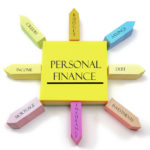By Brenda Cagara
Special to the Financial Independence Hub
Personal finance is the art of managing finance individually or for household purposes.
Why would I call it an art? As there are several factors that need to be taken into consideration, the word may seem simple but it is not.
These factors may include purchasing of financial products example, home and life insurance, credit cards mortgages, investments and vehicles: In other words, handling budget, savings, and spending monetary resources over time, taking into account various financial risks and benefits for future life events.
Nowadays, personal finance is regarded as a specialty on its own. Historically, it was taught as a part of home economics or termed as “consumer economics,” which was included as a curriculum in various schools, colleges and university. In 1947, Herbert A. Simon, a Nobel laureate, suggested a decision maker did not always make the best financial decision because of limited educational resources and personal inclinations.
In 2009, Dan Ariely suggested the 2008 financial crisis emphasized the fact human beings do not always make rational financial decisions, and the market is not necessarily self-regulating or corrective of any imbalances in the economy. Therefore, it is crucial to obtain some basic information about this topic to help an individual or a family to make rational financial decisions throughout his or their lifetime.
Planning Personal Finance
To understand personal finance, one should first have at least a vague idea of financial planning. Financial planning can be defined as a process that requires regular monitoring and re-evaluation of income and expenses. It includes five components: assessment, goals, planning, implementation, monitoring and re-evaluation.
- Assessment. Financial position can be assessed by making a balance sheet or personal statement. A balance sheet includes value of all the personal assets and liabilities. A personal statement personal income and expenses.
- Setting up small targets acts as an incentive for a person to work hard enough to achieve a financial position is a smart idea. These goals can be divided into short term and long term. Long-term goals may be being retired at the age of 60 with a net worth of $15,00,000, whereas an example of short-term goal may be saving up to buy a new house, a car or a new television.
- Once we’ve decided our aims and objectives, we need to have a plan as to how we are going to go about it to achieve it. An ideal plan should include a road map to decrease expenses and a way to enhance earning.
- This is the most crucial part of the five steps and in fact the most difficult of all. Once a person comes up with an ideal plan, there should strict implementation of it with discipline and perseverance.
- Monitoring and reassessment. With time there are changes in every individual’s life, family and priorities. In order to accommodate these changes the plan will require some alterations over the period of time, making monitoring and reassessment very important.
Personal Finance Tips
1.) A budget is a financial roadmap allows you to live within your means, while having enough left over to save for long-term goals. A simple example of budget can be as follows:
50% of net income can be allocated towards living essentials; this includes rent, groceries, fuel, transport and utilities.
30% allocated to leisure and lifestyle, dinning out and shopping.
20% goes towards the future savings, debts, retirement and for emergencies.
Thanks to the modern technologies and Smartphone giving us apps that can monitor our budget and daily expenses.
If you have a Dubai business setup you might want to emphasis highly on budget as all UAE residents have to consider, no matter how much they earn.
2.) Limiting Debt.
3.) Be wise with credit-card usage. Another way to smartly regulate your debit card usage is to use debit cards instead so you don’t exceed your credit-card limits at the end of the month.
4.) Tax planning. The income tax is the single largest expense in a household. Managing taxes is not a question whether or not taxes will be paid, but whenand how much.
5.) Investments not only allow you to lock down the extra money in good financial years but also increase the value of your liquid cash. Liquid cash itself depreciates over the span of years but when invested, for example in a property, the overall value of the property generally rises over the years and not fall, increasing the value for money.
6.) Depreciating assets. This is perhaps one of the fundamental points to be considered. There are certain assets that lose its value over time or with its use like boats or vehicles. These assets should be replaced periodically.
7.) Discussing personal finances with trusted people will be a good idea. If you have savings, you should discuss your personal statements and your road map to ensure you are saving in such and such an account. But also keep in mind you should not trust your friends to an extent that you tell them everything about your money, especially if it’s locked up in your room.
Why is Personal Finance important?
We all have heard of the famous quote “Planning is better than cure,” a quotation that perfectly applies here.
1.) The need for personal finance arises from the necessity of meeting the financial goals of individual’s life.
2.) Personal finance enables us to take a comprehensive look towards futures financial needs and goals including debt management, cash flow, retirement planning, education funding, estate conservation and management.
3.) The benefit of personal finance is that it ensures the right amount of money is available in the right hands at the right point of time in future to achieve specific and desired Financial Goals.
4.) Personal finance dodges future unpredicted losses.
5.) Personal Finance keeps the money handy in the years of financial crises.
 While Brenda Cagara got experience in setting up a business in Dubai with the top business consultants, she managed to build her writing career as well. In the past five years, she has written on nearly every niche. Her office job expertise lies in business consultancy, visa processing, trade license, trade mark, local sponsoring, product registration and bank account opening. You can follow her on Twitter here.
While Brenda Cagara got experience in setting up a business in Dubai with the top business consultants, she managed to build her writing career as well. In the past five years, she has written on nearly every niche. Her office job expertise lies in business consultancy, visa processing, trade license, trade mark, local sponsoring, product registration and bank account opening. You can follow her on Twitter here.


